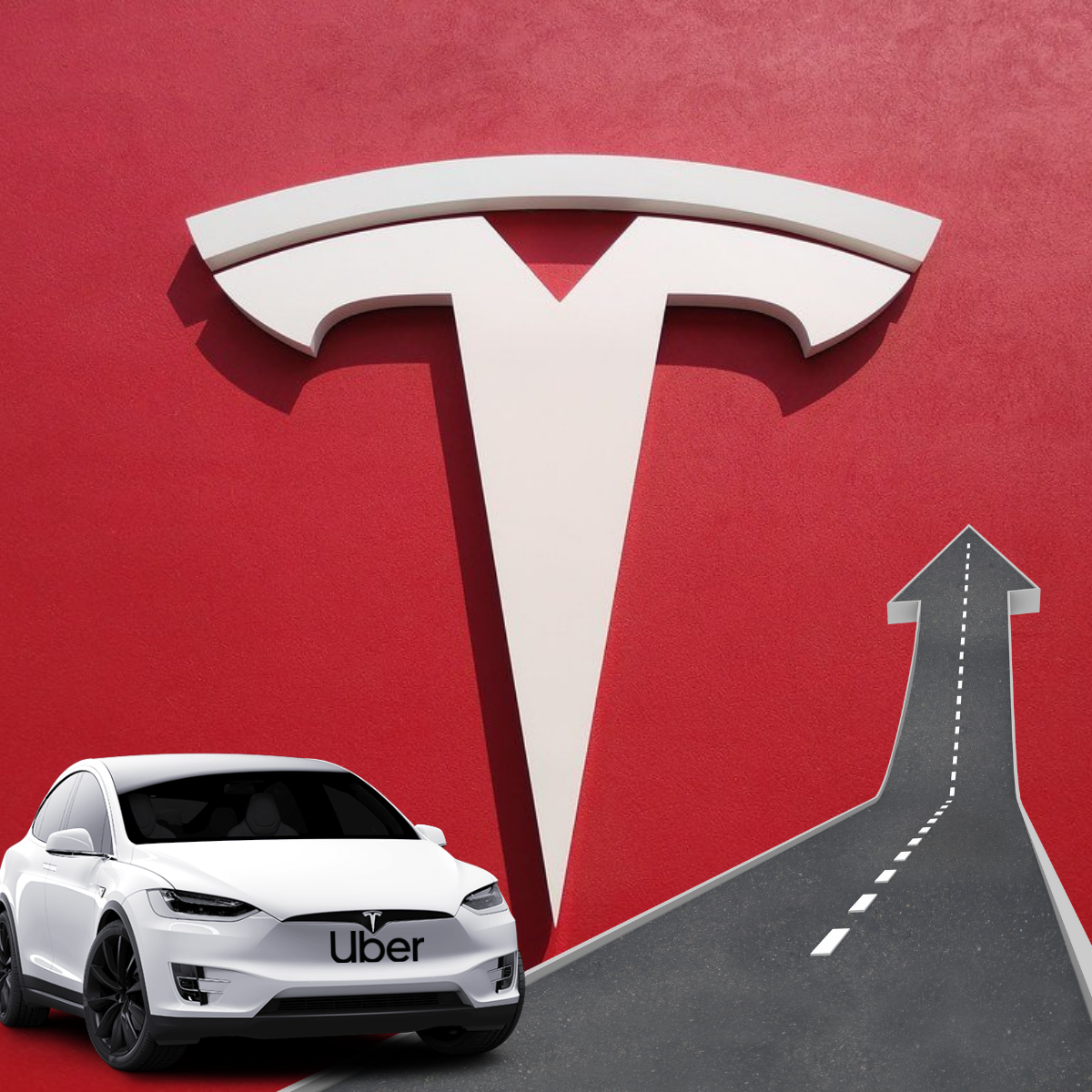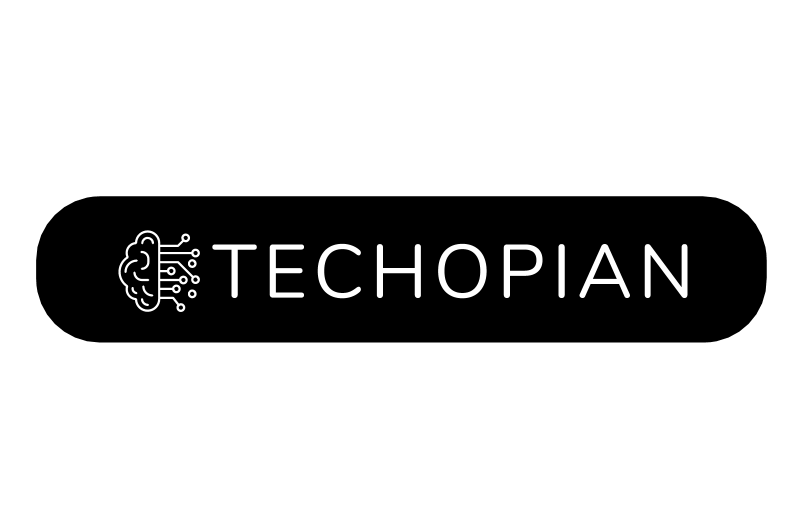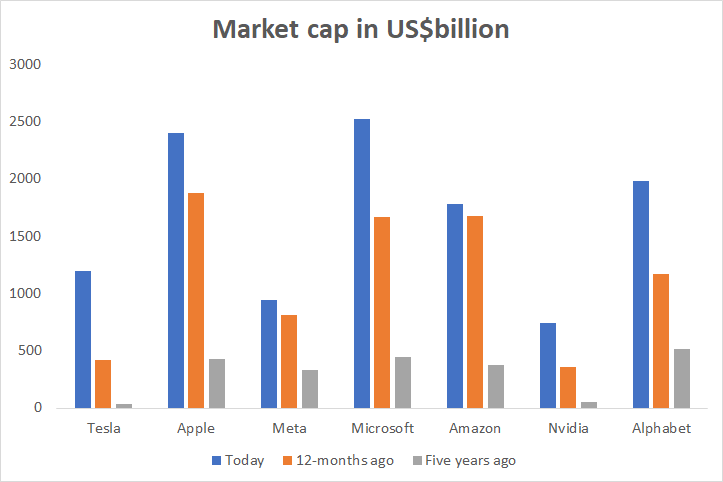Techopian's weekly roundup of some of the key stories covered this week. For those too busy during the week but need something to make them seem informed on Monday morning
AI and blockchain to help create the Metaverse
As a matter of interest, Meta matters
Cop26: not enough carrots
Tesla propels Transport as a Service and gets a trillion-dollar valuation
Musk hypes Tesla by talking down the share price
Autonomous cars are closer than you think
Connectivity to charge autonomous cars and flying taxis revolution
Is Lyft close to becoming profitable?
Photonic Computers give Moore's Law a new lease on life
AI and blockchain to help create the Metaverse
There is this company called Meta; you may have heard of it; its boss is this guy called Mark Zuckerberg.
But what does Meta mean, anyway?
The dictionary isn't much help; at least different dictionaries have different definitions. The most popular definition has meta as something referring to itself. "The enterprise is inherently 'meta' since it doesn't review movies; for example, it reviews the reviewers who review movies." So that fits in rather well with metatags, where you tell search engines about your websites.
Meta-ethics refers to ethics about ethics. Or a meta lamp is a picture of a lamp that lights up.
So, how is that all linked to the so called Metaverse? The original Greek meaning refers to after or beyond.
So there you have it, the Metaverse is beyond, but it is also based on reality.
And all of a sudden, meta is the talk of the town, let alone the web and indeed the Metaverse — how very meta.
Apple has filed a patent for beaming images directly onto the eyeball.
Microsoft has entered the fray too.
AI and blockchain, and NFTs will be key components/building blocks of the Metaverse.
Here we take a look at Facebook and Microsoft and solicit the views of experts on the Metaverse.

And as we argue, Facebook's change of direction to the Metaverse is a bold move. The company understands that Facebook — the social media platform — and indeed Instagram won't be here forever.
To quote David Bowie, we see ch-ch-ch-ch-changes.
Bowie was the master of reinvention, and reinvention is what is required to avoid becoming a victim of great gales of creative destruction.
At some point, Apple will have to re-invent its top-selling product; augmented reality is the future, and maybe beaming images onto the eyeball is how it will re-invent itself as a Metaverse company.
Facebook is surely the most unpopular popular company in the world, and not everyone is in love with its Metaverse plans, but Facebook is betting the lot on the roulette wheel of disruptive technology.
If it comes off, Facebook or Meta could make a grab for Apple's and Microsoft's crown as the world's biggest company.

Cop26: not enough carrots
Is there life on Mars? If there is, it might not know about the conference called Cop26.
Climate change poses an existential threat to human civilisation— there I said it.
Climate change is also an opportunity because it forces us to re-evaluate how we get energy. That re-evaluation is throwing up exponential technologies like wind, solar, various energy storage technologies, and even cultured meat.
We are entering the age of sustainability by design, and this is good news.
Ms. Thurnburg said: "The people in power can continue to live in their bubble filled with their fantasies, like eternal growth on a finite planet and technological solutions that will suddenly appear seemingly out of nowhere and will erase all of these crises just like that."
Big fan of Greta, but she is wrong about eternal growth — well, growth won't be eternal, of course, but there is no trade-off between fighting climate change and economic growth — they are not mutually exclusive.
The Guardian summed up the problem: Half the world's fossil fuel assets could become worthless by 2036 in net-zero transition
The problem isn't the cost of defeating climate change. Instead, the issue is the effect of disruptive technologies on established companies which make up a big chunk of baby boomers' pensions and the way the economy is structured.
The problem with fighting climate change is not the cost. It is that changing the way the economy is structured is psychologically challenging. Ch-ch-ch-ch-changes are difficult.
At Cop26, one speaker after another talks about how we must do something. It is like that scene in Life of Brian when one character after another makes a speech to say the time for speeches is over.
Instead, we need to focus less on the climate change stick and more on the opportunity of exponential technologies. The infrastructure for renewable technologies to operate on is potentially larger than any other opportunity of it's kind in the history of the world.
If only we had the foresight to see it!

Tesla propels Transport as a Service and gets a trillion-dollar valuation
Talking of disruption, here is a thought, the Lyft and Uber type business models could do to traditional Transport what the cloud has done to IT infrastructure. Ride-hailing will be the cloud of Transport, 'Transport as a Service' will be the 'software as a service' of Transport.
And that takes us to Tesla and Lyft.
Two weeks ago, we said Tesla shares might be cheap; well, would you believe it? They are up 40 per cent since then.
Both Hertz and Uber have been busy ordering Teslas, Tesla as a service is emerging, and it is the shape of things to come.
See:

Musk hypes Tesla by talking down the share price
Yet, what does Elon Musk do? If anything, he tries to talk the Tesla share price down. They say he hypes Tesla stock, but he has a funny way of doing it.

Is Lyft close to becoming profitable?
Meanwhile, Lyft's earnings before interest, tax, depreciation and amortisation have been positive for two quarters in a row.
For that matter (meta), Uber made an underlying profit in its latest quarter.
Lyft, Uber and Tesla are the three companies technology bears love to refer to when they wax lyrical on 'absurd valuations of stocks.' However, take a gander at the story of Lyft results, and it is quite possible to see an argument to suggest the share price is easily justified.
This is especially so when you consider the impending importance of Transport as a Service.

Autonomous cars are closer than you think
Autonomous cars are the key component to transport as a service, and they might be closer than you think. Indeed, if the exponential rate of distances covered by autonomous cars without the safety driver taking over continues, autonomous cars could be safer than traditional cars within three years and twice as safe within four years.
Connectivity to charge autonomous cars and flying taxis revolution
Add to the mix connectivity technologies— and autonomous cars, not to mention vertical take-off and landing vehicles taxis, which you could call passenger drones, or indeed fixed-wing taxis — might be getting closer too.
Photonic Computers give Moore's Law a new lease on life
And finally, there is Moore's Law mark two.
Ray Kurzweil once said, "What's not fully realised is that Moore's Law was not the first paradigm to bring exponential growth to computers. We had electromechanical calculators, relay-based computers, vacuum tubes, and transistors. Every time one paradigm ran out of steam, another took over."
That which we call Moore's Law by other name smells of progress.
Moore's Law literally refers to a comment by Intel Co-founder Gordon Moore about the number of transistors on an integrated silicon circuit.
Let's consider Moore's Law as a metaphor for exponential change.
Literally, Moore's Law might be dead, but metaphorical Moore's Law is alive and kicking. We see it with renewables, cultured meat, graphene and drones.
Now, we might be about to see it in computing with an interesting breakthrough in photonics.

Here is a pretty picture for you to ogle at:

Until next week, live long and prosper in the Metaverse.
Hope you enjoy the newsletter, let us know by emailing info@techopian.com and if you really like it, send it to a friend you really care about.






Related News
A time to buy tech and the tech quintet to watch
Jan 03, 2023
Can social media defeat Russia?
Feb 25, 2022
1989: The failure of our 'moral' society
Feb 24, 2022